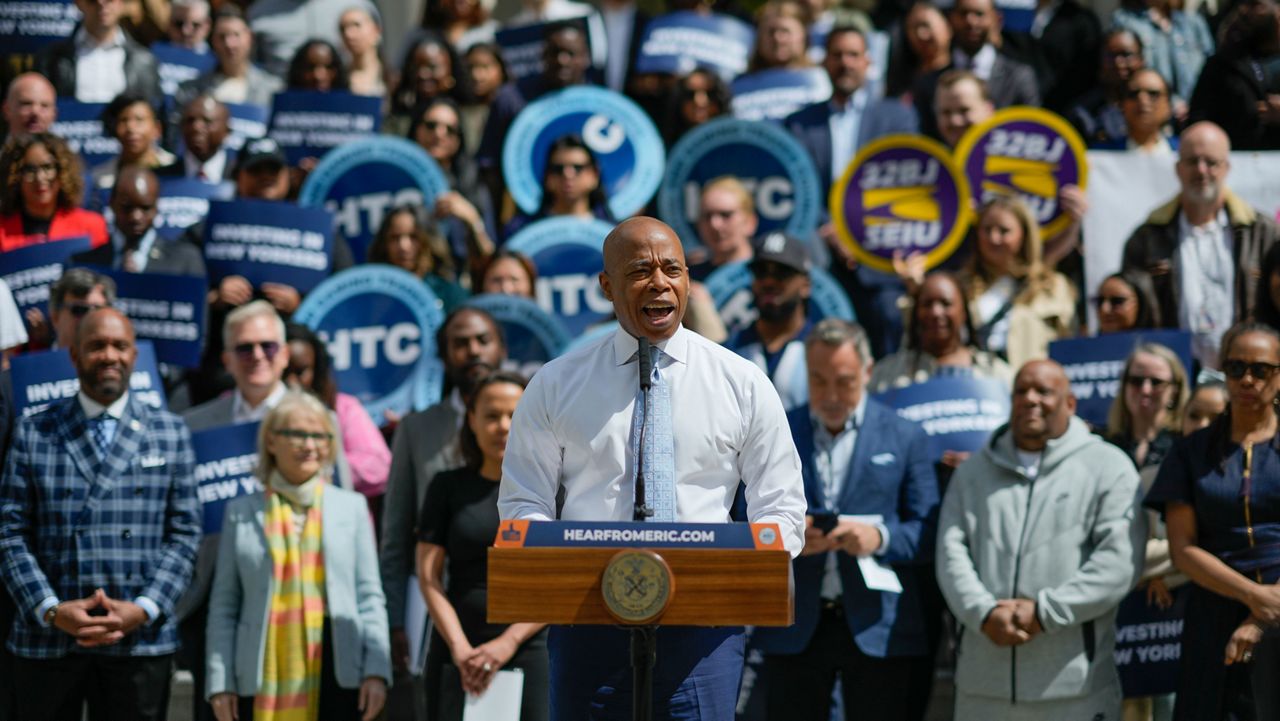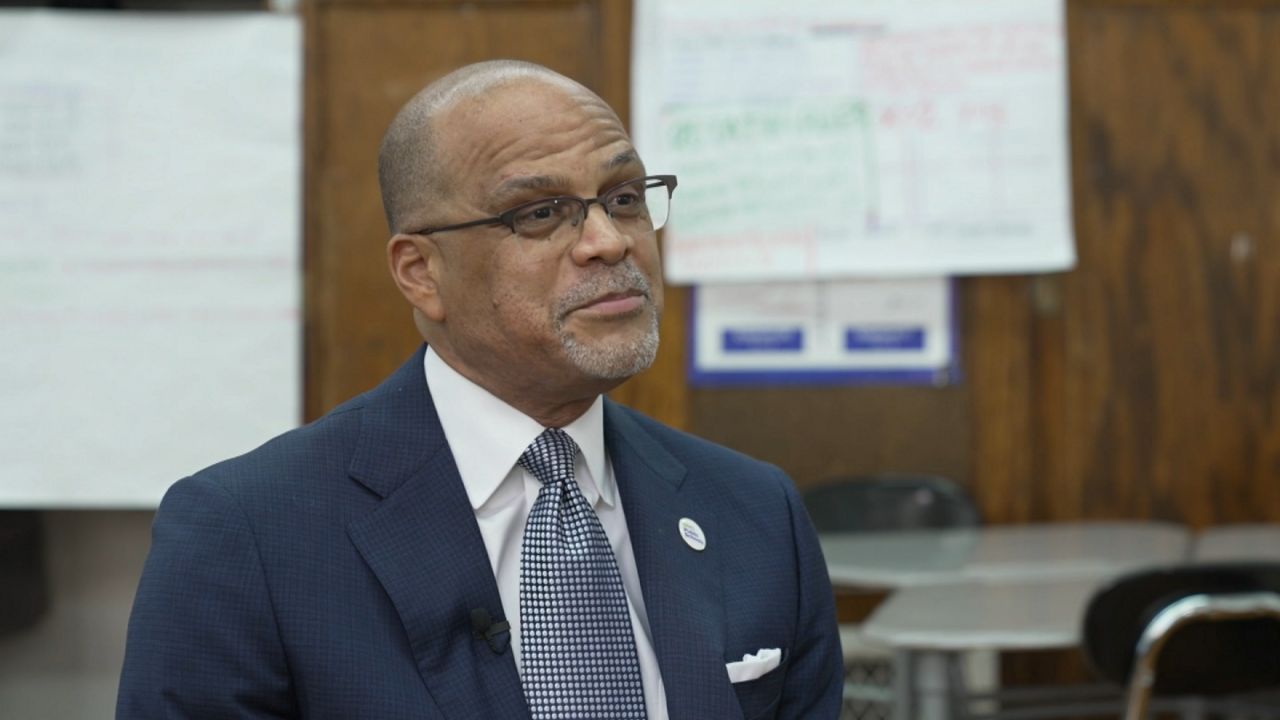A day before the start of public school, New York City Schools Chancellor David Banks rolled out a safety plan that includes hiring more NYPD school safety agents.
“A newly graduated class of approximately 200 school safety agents will enter our schools on the first day of school. That is good news,” he said Wednesday.
However, this new class of agents, and three more beginning training in September, January and May, won’t keep pace with the number of agents who have left.
The NYPD originally had over 5,000 agents before the pandemic, and now has about 3,100 in schools.
The agents have faced criticism from some students and advocates who argued children feel over policed at school, and from elected officials who have argued the schools department, not the police, should employ them.
Yet Banks, a former school safety agent, offered a strong defense of their roles in school communities.
“They’re not some outside force that means harm to our children. They’re here every day to ensure the safety of our children,” Banks said.
The plan also includes new technology to let principals send push alerts to the cellphones of parents and guardians during emergencies or lockdowns, like the ones that occurred after a subway shooting in Sunset Park.
“We want to put them in a position where they don’t have to wait for the local news to know exactly what’s going on,” Banks said.
The city provided active shooter trainings to school staff, and conducted a survey of all building entrances and exits to make any needed fixes.
All schools’ doors, except the front entrance, are locked and alarmed.
“While the front door is staffed by school safety agents, we continue to explore options for securing even the front door while enabling easy access for first responders and even for students who are seeking refuge,” he said.
Banks said he also wants to protect students’ emotional safety by moving social workers from central positions closer to schools, creating new programs to interrupt violence, and maintaining ongoing efforts not to be overly punitive when students misbehave.
“Schools are the place where kids make mistakes. And schools have to be the places where they, in fact, learn from their mistakes,” he said.
According to Banks, the city won’t make cuts to restorative justice programs, which emphasize students talking out disputes, reducing the focus on punitive discipline.




_Dnt_Budget_-_PS_Cell_Phone_Ban_Clean)

_CGPKG_Banks_House_Committee_Testimony_CG)
